About half way through this one…interesting stuff.
Texas tall tales…“some of them are true”
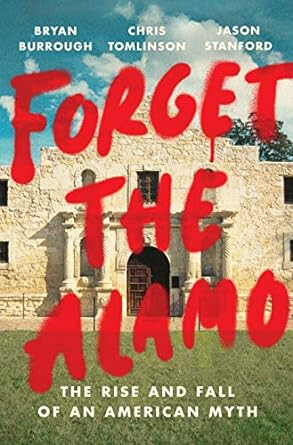
About half way through this one…interesting stuff.
Texas tall tales…“some of them are true”

By the same author as the excellent Spanish Civil War history a few posts above…
UPDATE: I’m about 200 pages in (out of 800+) and what strikes me are:
(1) The terrible, staggering cruelty of war. If you are a civilian in war, get the hell out of there any way you can.
(2) The “Fog of War.” Example: the Allies had cracked German codes and pretty much knew Germany was going to use an aerial assault on the British on Crete. But the local commander didn’t believe it & kept preparing for a sea attack. He held shore batteries in reserve and didn’t destroy all the runways. British troops had to watch German Junkers easily landing troops who then drove them off Crete.
(3) The distant “tele-connections”. Example: Chiang Kai-shek counted on access to French Indochina for his Nationalists vs. Japan & Mao’s Communists. But when France fell to the Germans, the weak Vichy government granted Japanese access to Hanoi because the French were no longer strong enough to refuse, thus weakening the Nationalists.
UPDATE 2 (P.664) Quesada’s IX Tactical Air Command was greatly admired by American ground forces for its panache, but it had acquired a reputation for bad navigation and target recognition. In October when called in to attack specific positions on the Westwall in Germany, not a single aircraft found the target. One even flattened the Belgian mining village of Genk, causing eighty civilian casualties. The 30th Division was hit hard when it reached Malmedy. This was the thirteenth time since landing in Normandy that it had been attacked by its own aircraft, and GIs even started to refer to the Ninth as ‘the American Luftwaffe’. This rather underlined the German army joke since Normandy that ‘if it’s British, we duck; if it’s American everybody ducks; and if it’s the Luftwaffe nobody ducks’.
That Second World War history by Beevor is a really good read. Also liked another by him, Stalingrad.
Yes, Beevor’s “Battle for Spain” impressed me.
After his WW2 book , I think I’ll try his Russian Revolution:
Baseball at the abyss.
The scandal no one talks about and absolutely should be used to get Pete Rose in the HOF.
Read the Greatest Beer Run Ever which didn’t take long to be a movie. Could have passed him along the way.
To all casual/fiction book readers…
DO NOT buy or read Grisham’s new book. Or even do the library for that matter. It is marketed as a sequel to The Firm, a pretty decent book. Horrible. Any character could have been plugged in place the originals. The only reason to equate it at all to the original was for Grisham to add 30 pages of back story and do a money grab.
5 star rated. Highly recommended. Please no political talk.
Then why did you create the link to the book is you ask for no political talk? This book is a piece of sh*t, is that political enough for you?
A key point: the Reds (Bolsheviks) were mostly united and held Moscow from which they could use rail lines to rapidly concentrate forces. The Whites (Tsarists, Cossacks, British, French, Czechs, Americans, etc.) were disorganized and were driven out from area after area. Advantage: Reds. This is similar to the Spanish Civil War where the Royalists united behind Franco while the Socialists, Basques, Catalonians, etc. fought among themselves over leadership.
War & Civil War is Hell on Earth. Get the hell out if you can. This is from p. 370 —
In October his men suppressed revolts by twelve Russian peasant villages in the Lepsinsk district. It took three attempts to crush them.
Once they captured Cherkasskoe, Annenkov’s men massacred 2,000 peasants, another 700 people in Kolpakovka, and 200 in Podgornoe. The village of Antonovka was burned to the ground, while in the small town of Kara-Bulak, all the men were killed. Another group of Greens called the Mountain Eagles, in the Urdzharsk region, were also crushed by Annenkov’s men.
The methods were typical for Annenkov: ‘on one day, the White detachment raided Kyryk-Orshak, made up of forty houses. They rounded up everyone in a great yurt. They hacked them to death with sabres.’ Only a three-year old girl, whom they failed to see, survived.
Actually, I am a first-generation Russian whose family was on the losing side and my grandfather fought in it. Keep in mind that the Whites were overwhelmingly outnumbered and out funded. They actually lasted longer than 1921. Many retreated to the islands of Lemnos and Gallipoli (my grandfather and grand uncle) by the thousands where they continued to train, march, etc. Wilson sent 20,000 troops to bolster support for the Whites and the Tsar but was rebuffed and send them all home. Could have changed everything.
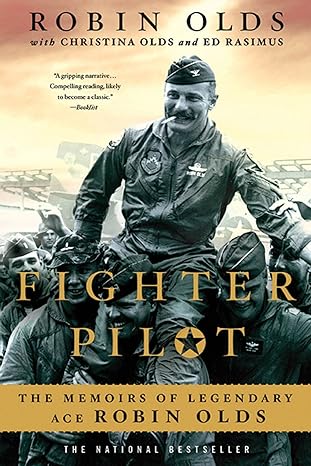
Very interesting fella. Member of the College Football Hall of Fame, a triple ace in WWII and Vietnam, and Commandant of the Air Force Academy. Still early, but the book is moving pretty quickly.
Olds is a stud
Reading an interesting history of the Vikings
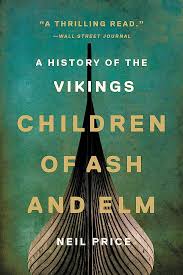
Got it from the Ft. Bend library — entertaining read, recommended.
Snip: On leave in London during WWII, Olds found a tiny antiques shop that had a magnificent arrangement of medieval armor in the front bay window. He made friends with the owner who vouched for the armor’s authenticity. The owner said he hoped to retire on the profits he made from selling it. So Olds left after deciding that he couldn’t afford it. A pal said go back and put some money down and pay it off which Olds decided to do —
A drywall contractor who wrote around hunting & fishing.
Near 60 when first published.
Dark rural tales with humor like Cormac McCarthy.
The Lost Country novel or I Hate To See The Evening Sun Go Down short stories a good place to start.
.
Two sources of historical Texas info I like are: Traces of Texas (https://twitter.com/TracesofTexas), a good follow on Twitter/X
and Texas State Historical Association’s ( TSHA ) daily email with tidbits about TX history. Today, Feb. 7, TSHA featured the birthday of Charles Siringo —
“2/7/1855: Cowboy, author, and detective born on Texas coast—On this day in 1855, Charles Siringo was born in Matagorda County. Beginning in 1870, he worked as a cowboy, part of the time for Shanghai Pierce, and later helped establish the LX Ranch. While working as an LX cowboy, he met Billy the Kid and led a posse into New Mexico in pursuit of him. In 1884, while working as a merchant in Caldwell, Kansas, Siringo began writing his first book, A Texas Cowboy; or, Fifteen Years on the Hurricane Deck of a Spanish Pony (1885), which established him as the first cowboy autobiographer and became a range literature classic. In 1886 he moved to Chicago and began a twenty-two-year career with Pinkerton’s National Detective Agency. He subsequently worked all over the West and participated in such celebrated cases as the Haymarket anarchist trial and the murder trial of “Big Bill” Haywood. After leaving Pinkerton’s in 1907, Siringo retired to his ranch in Santa Fe, New Mexico. His second book (A Cowboy Detective, 1912) caused a bitter conflict with the Pinkertons, and his Two Evil Isms, Pinkertonism and Anarchism (1915) brought an unsuccessful libel suit from the agency. Siringo was appointed a New Mexico Ranger in 1916 and for two years saw active service against cattle rustlers. Following his return to Santa Fe he published A Lone Star Cowboy (1919) and History of “Billy the Kid” (1920). In 1922 he moved to Los Angeles, where he worked as a film advisor and played bit parts in movies. His Riata and Spurs (1927) was a mature composite of his first two autobiographies. Siringo met such varied celebrities as Pat Garrett, Bat Masterson, Clarence Darrow, William S. Hart, and Will Rogers. He helped to romanticize the West and to create the myth of the American cowboy. Siringo died in California in 1928.”
Just the title of “A Texas Cowboy; or, Fifteen Years on the Hurricane Deck of a Spanish Pony” told me I had to read it. Fort Bend Libraries didn’t have a copy to check out so I found one for $5.75 total at www.abebooks.com, one of my favorite sites for inexpensive used books.
The library had “A Cowboy Detective” which I’ve put a hold on.
I’ll let y’all know how they read.
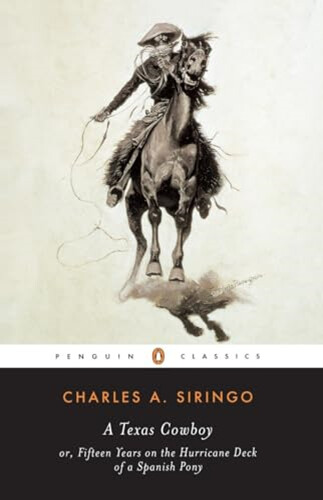
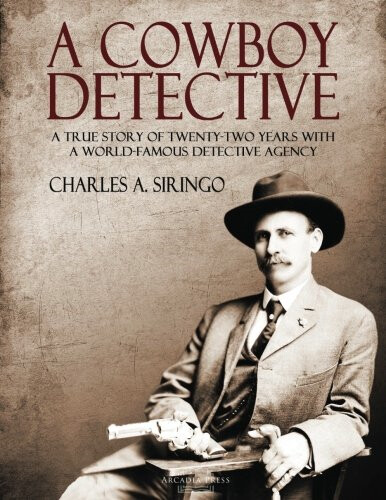
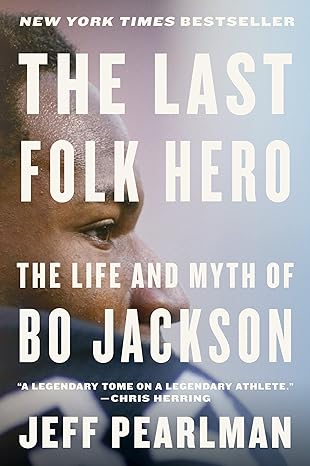
Excellent read. Jackson played only 38 NFL games and the equivalent of 5 full baseball seasons, but left such a mark on the culture between the highlights, the Tecmo Bowl, and the Bo Knows commercials. Everyone my age knows who he is and regards him as one of the greatest athletes of all time, even if his actual pro career(s) were brief. Truly a story of what could have been had he stayed healthy.
© 1999-2025 CoogFans.com